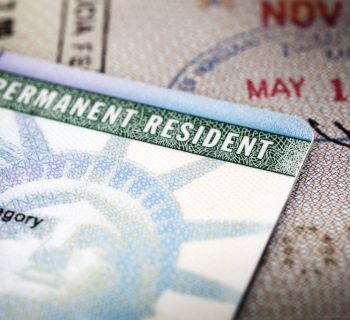By Miriam Berger & Adam Taylor | The Washington Post | JUN. 27, 2023 | Photo by AP
The head of the Wagner mercenary group, Yevgeniy Prigozhin, has been exiled to Belarus after calling off his stunning but short-lived mutiny against Russia’s military leadership on Saturday, according to the Kremlin. As part of the reported deal — brokered by Belarusian President Alexander Lukashenko — Moscow dropped criminal charges and Wagner forces withdrew from cities and key military installations they temporarily seized in southern Russia. Wagner fighters who did not participate in the rebellion will be formally incorporated into the Russian military, the Kremlin said.
Since its founding nearly a decade ago, the Wagner Group has typically operated in the shadows in Ukraine, Africa and elsewhere in the world. The global network of organizations of fighters for hire has been known to be led by Prigozhin and allied with the Kremlin, though details remain shrouded in secrecy. On Tuesday, Russian President Vladimir Putin — a onetime ally of Prigozhin — told state-run Tass news agency that Wagner was “fully funded by the state,” though he did not say whether that cash flow would continue.
Tensions between Prigozhin and Moscow had been rising for months. For much of the last year, Prigozhin has been clashing with Russia’s top brass and railing against the generals for what he says is their mishandling of the war in Ukraine. He accused them of failing to supply his troops, who are fighting on the front lines, with adequate ammunition.
The standoff came to a head late Friday when Prigozhin vowed to march on Moscow. In an 11-minute speech released Monday on Telegram, Prigozhin said he took action to prevent his mercenaries from being absorbed into Russia’s regular military, not to overthrew the government. But the group’s lightning blitz toward the capital — and seizure of military sites along the way — stunned observers and prompted Russian authorities to scramble to build defenses on the outskirts of Moscow and other cities. Putin pledged to crush the revolt and has portrayed its participants as traitors to the nation.
Here’s what to know about the Wagner Group and its leader.
Who is Yevgeniy Prigozhin?
Prigozhin has emerged as a key figure in Russia’s war in Ukraine — especially in the long, bloody battle for the city of the Bakhmut — which raged throughout the winter and into the spring. He has grown increasingly critical of Russia’s military leaders, accusing them of failing to successfully prosecute the war or to properly equip his troops. His criticism often comes by way of profane diatribes he posts as audio or video files on social media.
Before the war, Prigozhin rose to wealth and prominence through contracts with the Russian state, including military food-service deals that earned him the nickname “Putin’s chef.” He has also boasted of operating “troll farms” and meddling in foreign elections, including in the United States. He has often expressed loyalty to Putin and blamed other leaders and elites for Russia’s problems.
Lukashenko on Tuesday said that Prigozhin had arrived in Belarus and that security guarantees are being provided as promised, state media outlet BELTA reported.
What is the Wagner Group?
The Wagner Group is not a single, traditional company, but a network of organizations providing fighters for hire — with the approval of the Kremlin.
Putin on Tuesday said that as of May, the Kremlin had paid Wagner and a related company, Concord, nearly $2 billion over the last year.
According to research by the Center for Strategic and International Studies in Washington, the group has probably operated in as many as 30 countries and has two training camps in Russia. It is ostensibly private, but according to CSIS, “its management and operations are deeply intertwined with the Russian military and intelligence community” under Putin.
In his message Monday, Prigozhin touted Wagner as among Russia’s most experienced fighters “who performed a huge number of tasks in the interests of the Russian Federation … in Africa, in the Arab countries and around the world.”
One of Wagner’s key functions, according to the Soufan Center, a nonprofit think tank based in New York, is providing Russia with “a thin veneer of plausible deniability as it engages in the pursuit of finance, influence, and vigilantism not in keeping with international norms.”
In September, Prigozhin acknowledged for the first time publicly that he founded the Wagner Group, in a statement posted by his press service on the Russian social media site VKHe said he had done so to assist Russian forces in Crimea, which Moscow illegally annexed in 2014, and to help pro-Russian separatists in eastern Ukraine.
“I flew to one of the training grounds and did it myself. I myself cleaned the old weapons, figured out the bulletproof vests, and found specialists who could help me with this,” he said. “From that moment, on May 1, 2014, a group of patriots was born, which later acquired the name … ‘Wagner.’ ”
In the past eight years, the presence of Wagner forces have been reported in Syria, Libya, Sudan, Mali, the Central African Republic, Madagascar, Mozambique and Venezuela, according to CSIS. Often, they are employed as security for Russian assets or the host governments; other times, they have been engaged on battlefields.
The United States has imposed rounds of sanctions on the group and designated it a “significant transnational criminal organization.” The mercenary outfit has been accused of “mass executions, rape, child abductions, and physical abuse in the Central African Republic (CAR) and Mali,” Treasury Secretary Janet L. Yellen said in a statement earlier this year.
What is the Wagner Group doing in Ukraine?
In 2014, the Wagner Group helped train, organize and arm Russian-backed militias fighting for control of Ukraine’s Donbas region. Wagner operatives also participated in the fighting and in intelligence-gathering, according to CSIS, and were reportedly part of Russia’s seizure and annexation of Crimea.
Washington estimated that Wagner deployed tens of thousands of mercenaries to Ukraine. Russia’s military went on to suffer significant losses, forcing it to rely on the group for help on the battlefield. Wagner in turn began recruiting from Russian prisons to bolster its ranks. The number of estimated Wagner fighters has since dropped to closer to 8,000, according to British intelligence, though Prigozhin has claimed to control 25,000 fighters.
Beginning last summer, the group has played a major role in Russian efforts to capture the city of Bakhmut in eastern Ukraine. Analysts say that while the town has little strategic value, Prigozhin has pushed the policy to show the Kremlin that Wagner is capable of gaining new territory.
What we know about the shadowy Russian mercenary firm behind an attack on U.S. troops in Syria
“Wagner is becoming a rival power center to the Russian military and other Russian ministries,” John Kirby, communications coordinator for the U.S. National Security Council, told reporters in January. But the organization, he said, has been making “military decisions based largely on what they will generate for Prigozhin in terms of positive publicity.”
Kirby also said North Korea has been sending arms to Wagner for use in Ukraine, including via rail over the small border Pyongyang shares with Russia.
In his message Monday, Prigozhin lambasted Russia’s military for failing to capture Ukraine’s capital, Kyiv, in the war’s early days and said his fighters would have been able to do so.







